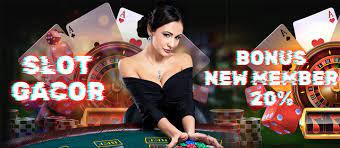Slot machines, also known as fruit machines, pokies, or one-armed bandits, have been a staple of casinos and gaming establishments worldwide since their inception. Their evolution from mechanical koinplay gacor digital games reflects broader trends in technology and gaming culture. This article delves into the history, technological advancements, and cultural impact of slot machines.
A Brief History of Slot Machines
Early Beginnings:
The origin of slot machines dates back to the late 19th century. The first mechanical slot machine, called the Liberty Bell, was invented by Charles Fey in 1895. It featured three spinning reels with five symbols: diamonds, spades, hearts, horseshoes, and a liberty bell. The simplicity of the Liberty Bell, combined with its mechanical ingenuity, quickly made it popular in bars and saloons.
The Rise of Electronic Slots:
The 1970s marked a significant transformation in slot machine technology with the introduction of electronic slots. The first electronic slot machine, the “Money Honey,” was developed by Bally Manufacturing in 1963. This machine used electronic components to replace mechanical parts, enabling higher payout percentages and more complex gameplay.
Digital Revolution:
The 1990s brought another leap forward with the advent of digital technology and the internet. Online casinos began offering virtual slot machines, allowing players to enjoy their favorite games from the comfort of their homes. This digital revolution expanded the reach of slot machines and introduced new features such as video graphics, bonus rounds, and progressive jackpots.
Technological Advancements
Random Number Generators (RNGs):
Modern slot machines use Random Number Generators (RNGs) to ensure fairness and unpredictability. RNGs are complex algorithms that generate thousands of numbers per second, determining the outcome of each spin. This technology guarantees that each spin is independent and random, eliminating any possibility of manipulation or predictability.
Video Slots:
Video slots, which use computer screens instead of physical reels, offer a more immersive and engaging experience. They feature advanced graphics, animations, and sound effects that create a dynamic gaming environment. Video slots often include themes based on popular movies, TV shows, and other cultural references.
Progressive Jackpots:
Progressive jackpots are a major innovation in slot machines. These jackpots accumulate over time as a portion of each player’s wager contributes to the prize pool. Progressive jackpots can grow to significant amounts, sometimes reaching into millions of dollars, attracting players with the potential for life-changing wins.
Cultural Impact
Popularity and Accessibility:
Slot machines have become a symbol of gambling culture, known for their ease of play and instant rewards. They are found not only in casinos but also in bars, restaurants, and online platforms. Their popularity is partly due to their simplicity and the thrill of potentially winning big with a single spin.
Regulation and Legislation:
The widespread use of slot machines has led to various regulatory measures aimed at ensuring fairness and protecting players. Different countries have established regulatory bodies to oversee slot machine operations, enforce standards, and prevent issues such as gambling addiction. In many jurisdictions, casinos are required to adhere to strict guidelines to ensure that their slot machines are fair and transparent.
Economic Impact:
Slot machines contribute significantly to the economy, generating substantial revenue for casinos and governments. The funds raised from slot machines often support local communities, including infrastructure projects and public services. However, the economic benefits come with social challenges, including the potential for gambling addiction and its associated problems.
Conclusion
Slot machines have undergone remarkable transformations since their invention, evolving from simple mechanical devices to advanced digital games with complex features. Their impact on gaming culture, technology, and the economy is significant, reflecting broader trends in entertainment and technology. As technology continues to advance, slot machines will likely continue to evolve, offering new experiences and opportunities for players around the world.


